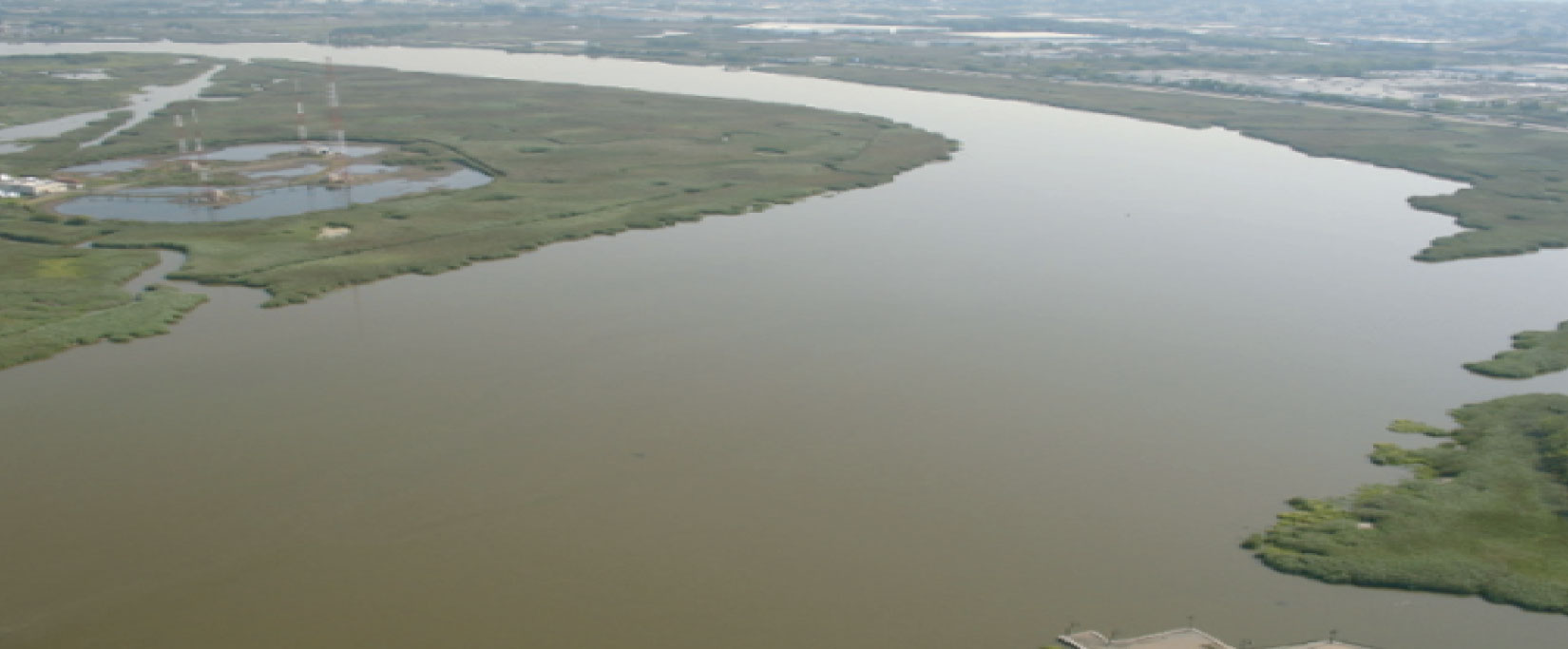RESEARCH, RESTORATION AND INNOVATION
The Meadowlands Research and Restoration Institute (MRRI) serves as the scientific arm of the NJSEA.
Our scientists “to protect the delicate balance of nature,” work to protect and study the Meadowlands’ vital natural resources, with a special interest in preparing the District for the effects of climate change and sea level rise.
The Meadowlands Research and Restoration Institute serves as the scientific arm of the NJSEA. This team of scientists works to protect and study the Meadowlands District’s vital natural resources, with a special interest in preparing the District for the effects of climate change and sea level rise. The team collects, analyzes and publishes real time data collected from the Hackensack River and the associated habitats of the Meadowlands Estuary to promote, restore, and preserve the unique wildlife habitats, provide actionable information to scientists and the public, encourage climate awareness, and empower community advocacy.
MRRI collects, analyzes, creates, and publishes real time data from the Hackensack Meadowlands Estuary in order to promote, restore, and preserve the region, provide actionable information to scientists and the public, encourage climate awareness, and empower community advocacy.
What We Do
Research
Produce credible and salient science that protects the air and water, and increases the biodiversity and adaptive capacity of the Meadowlands.
Innovate
Commit to the use of proven best practices while supporting the research and implementation of innovative practices.
Restore
Develop potential restoration ideas and opportunities to assist with the recovery of the Meadowlands’ ecosystem and protect the delicate balance of nature.
What We Do
TRAIN
Train environmental scientists by addressing the environmental problems of the Hackensack Estuary.
Develop
Apply and develop new technologies to address the legacy of environmental problems in the Meadowlands.
Promote
Promote regional gathering and sharing of planning and environmental information.
Photo Of The Day

Resources
Environmental Science Students Visit the Meadowlands
Students enrolled in an environmental science class at Rutgers University Newark, led by Professor Adam Kuska, visited the Meadowlands to explore environmental monitoring of water quality in the lower Hackensack River. The students analyzed measurements of dissolved oxygen, pH, turbidity, salinity, and temperature during their visit. These hands-on experiences allow environmental science students to apply
GPS Rover Wheel
As part of MRRI’s spatial data collection campaign, GIS specialists are surveying trails and berms utilizing a GPS Rover Wheel to optimize continuous surface elevation collection over uneven terrain. The rover wheel construction enables us to collect high quality surface elevation data, as this accessory keeps the rover rod on the surface, while allows surveyors
Tide Gate Inspection
MRRI has started a district wide tide gate and berm inspection campaign in the Lower Hackensack River Estuary. MRRI GIS specialists are working with engineers from Storm Water Management to assess the current status of flood protection structures that are crucial for the area’s flood hazard mitigation. The Hackensack Meadows are historically prone to flooding
Losen Slote Park Boardwalk Construction in Progress
MRRI staff is building a boardwalk in Losen Slote Park to provide better access to park goers throughout the year, and to protect vernal pool habitat.



